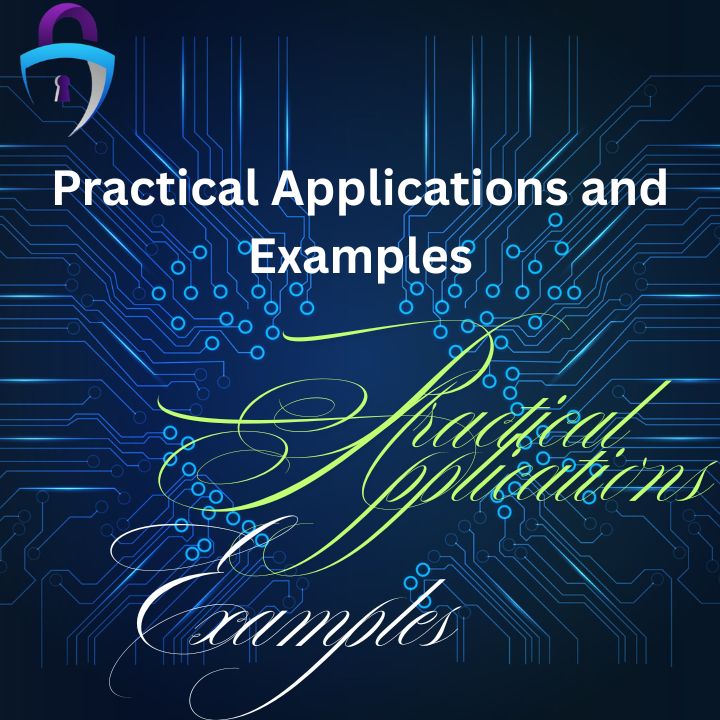Language is rich with words that carry profound meaning, and understanding these nuances empowers us to communicate with precision and impact. Two terms that have gained significant attention in 2025 are “Lumon” and “hiatus” — each carrying distinct meanings that span from corporate culture to everyday communication.
This comprehensive guide explores these terms, their cultural significance, and provides you with professional alternatives to enhance your communication toolkit.
🚀 Creative Name Generator
Group Names
Sports Teams
Game Names
School Names
Business Names
Fantasy Teams
Select a category to generate names
What Does “Lumon” Mean?
Lumon Industries is a fictional biotechnology corporation from Apple TV’s “Severance” series, where employees undergo memory separation procedures dividing work and personal identities.
This dystopian company has transcended entertainment to symbolize excessive corporate control, workplace surveillance, and identity manipulation in modern discourse.
The Cultural Phenomenon
Lumon Industries is a biotechnology corporation featured in the acclaimed Apple TV+ series “Severance,” where employees undergo a medical procedure that ensures they retain no memories of the outside world while at work and have no recollection of their job once they leave.
Lumon’s Symbolic Significance
The term “Lumon” has evolved beyond its fictional origins to represent several contemporary workplace anxieties:
Corporate Control and Identity: Lumon sells severance as a way to optimize work-life balance, with workers sometimes electing to undergo the procedure as a trauma-coping mechanism. This reflects real-world concerns about corporate overreach into personal identity and autonomy.
Technological Dystopia: Lumon pioneered the severance procedure, which divides a person’s consciousness and memory, creating a complete separation between workplace and personal identity. This represents fears about technology’s potential to fragment human experience and consciousness.
Mystery and Opacity: Despite appearing to be one of the biggest companies in the Severance universe, it is scary that no one knows what Lumon Industries actually does. This mirrors real-world frustrations with opaque corporate structures and unclear business purposes.
Lumon in Modern Discourse
In contemporary text and conversation, “Lumon” has become shorthand for:
- Excessive corporate control over employee lives
- Mysterious or questionable business practices
- The darker side of “work-life balance” initiatives
- Identity suppression in professional environments
What Is the Meaning of “Hiatus”?
Hiatus, derived from Latin meaning “gap” or “opening,” refers to a temporary pause, break, or interruption in continuity. Commonly used in entertainment for show breaks, professional contexts for career pauses, and academic settings for study interruptions, it represents deliberate stepping back.
Definition and Etymology
The word “hiatus” originates from Latin, meaning “a gap” or “an opening.” In modern English, it refers to a pause, break, or interruption in continuity. It can describe a break in or as if in a material object: gap; a gap or passage in an anatomical part or organ. However, its most common usage relates to temporary pauses in activities, processes, or continuity.
Common Contexts for Hiatus
Entertainment and Media: Television shows, podcasts, or content creators often take a hiatus between seasons or during production breaks. This usage has become increasingly common in the digital age where content creation follows irregular schedules.
Professional Life: Employees may take a career hiatus for personal development, family obligations, or mental health reasons. This usage has gained respectability as workplace culture evolves to recognize the importance of breaks and sabbaticals.
Academic Pursuits: Students or researchers might take a hiatus from their studies to gain real-world experience, travel, or address personal circumstances.
Creative Work: Artists, writers, and musicians frequently take creative hiatuses to recharge, explore new directions, or overcome creative blocks.
The Psychology of Hiatus
Understanding hiatus goes beyond its literal meaning to encompass its psychological and social implications. In our always-connected world, taking a hiatus represents a deliberate choice to step back, reflect, and recharge. It challenges the cultural narrative of constant productivity and acknowledges the human need for rest and renewal.
What Does Lumon Stand For and Its Meaning in Text?
Lumon as Cultural Shorthand
While “Lumon” doesn’t represent a traditional acronym, its meaning in text and digital communication has evolved to encompass several themes:
Corporate Dystopia: When someone references “Lumon-like behavior,” they’re typically critiquing corporate practices that seem to prioritize control over employee wellbeing.
Identity Fragmentation: The mysterious Lumon Industries agree to a procedure that separates work memories from the ones of the outside world. This concept resonates with modern workers who feel their professional and personal identities are increasingly compartmentalized.
Workplace Surveillance: The name has become associated with excessive monitoring and control of employee behavior, reflecting contemporary concerns about workplace privacy.
Digital Communication Context
In online forums, social media, and professional discussions, “Lumon” serves as:
- A warning about corporate overreach
- A metaphor for loss of personal agency
- A symbol of the dehumanizing aspects of modern work culture
- A reference point for discussing work-life balance extremes
Polite, Professional, and Casual Alternatives to “Hiatus”

Understanding context and audience is crucial when communicating about breaks or pauses. Here are comprehensive alternatives organized by tone and appropriateness:
Formal and Professional Alternatives
1. Sabbatical
- Context: Academic or professional extended leave
- Example: “Dr. Johnson is taking a sabbatical to conduct research in Southeast Asia.”
- Tone: Highly professional, implies purposeful break
2. Leave of Absence
- Context: Official temporary departure from duties
- Example: “The employee has requested a leave of absence for family reasons.”
- Tone: Formal, often implies official approval
3. Suspension of Operations
- Context: Business or organizational pause
- Example: “The company announced a temporary suspension of operations pending investigation.”
- Tone: Official, often implies external circumstances
4. Recess
- Context: Legal, governmental, or educational breaks
- Example: “The court is in recess until 2 PM.”
- Tone: Formal, structured, temporary
5. Intermission
- Context: Performance arts, presentations, events
- Example: “There will be a 15-minute intermission between acts.”
- Tone: Formal but accessible, planned break
Professional but Approachable Alternatives
6. Break
- Context: General pause in activity
- Example: “Let’s take a break from this project and revisit it next week.”
- Tone: Neutral, universally understood
7. Pause
- Context: Temporary halt in ongoing activity
- Example: “We’ve decided to pause recruitment while we reorganize.”
- Tone: Gentle, implies resumption
8. Temporary Hold
- Context: Project management, business decisions
- Example: “The initiative is on temporary hold pending budget approval.”
- Tone: Business-appropriate, implies review process
9. Moratorium
- Context: Official suspension of activity
- Example: “The board declared a moratorium on new hires.”
- Tone: Formal, implies deliberate policy decision
10. Grace Period
- Context: Extended time allowance
- Example: “We’re offering a grace period for payment adjustments.”
- Tone: Professional but considerate
Casual and Conversational Alternatives
11. Breather
- Context: Informal rest or pause
- Example: “I need to take a breather from social media.”
- Tone: Casual, relatable, implies brief rest
12. Time-out
- Context: Borrowed from sports, implies temporary stop
- Example: “Let’s call a time-out on this discussion.”
- Tone: Informal, suggests regrouping
13. Pit Stop
- Context: Racing metaphor for brief pause
- Example: “This is just a pit stop before we continue the journey.”
- Tone: Energetic, implies strategic pause
14. Cooling-off Period
- Context: Time to reduce tension or reconsider
- Example: “Maybe we need a cooling-off period before making this decision.”
- Tone: Diplomatic, emotionally aware
15. Mental Health Break
- Context: Pause for psychological wellbeing
- Example: “I’m taking a mental health break from work.”
- Tone: Modern, health-conscious, destigmatizing
How to Choose the Best Alternative for “Hiatus”
Consider Your Audience
Corporate Leadership: Use formal terms like “sabbatical,” “leave of absence,” or “suspension of operations” to convey professionalism and structure.
Colleagues and Peers: Opt for approachable terms like “break,” “pause,” or “temporary hold” that maintain professionalism while being relatable.
Friends and Family: Casual alternatives like “breather,” “time-out,” or “mental health break” create intimacy and understanding.
Public Communications: Choose neutral terms like “break” or “pause” that are universally understood without being overly casual or formal.
Assess the Duration
Short Breaks: Use “pause,” “breather,” “time-out,” or “pit stop” for brief interruptions.
Medium-Term Pauses: Employ “break,” “temporary hold,” “recess,” or “cooling-off period” for weeks to months.
Extended Periods: Utilize “sabbatical,” “leave of absence,” “moratorium,” or “suspension of operations” for longer durations.
Evaluate the Reason
Health and Wellness: “Mental health break,” “sabbatical,” or “leave of absence” show respect for personal wellbeing.
Strategic Decisions: “Temporary hold,” “moratorium,” or “suspension of operations” imply thoughtful business considerations.
External Circumstances: “Recess,” “suspension of operations,” or “pause” suggest factors beyond immediate control.
Personal Choice: “Breather,” “break,” or “sabbatical” emphasize individual agency and decision-making.
Nuances of Tone and Meaning
Understanding Connotations
While hiatus generally means a break, the tone and formality of its use can vary: Formal/professional use implies an official or planned pause, while casual use sounds more personal.
Positive Connotations:
- Sabbatical: Implies growth, learning, or purposeful pursuit
- Grace period: Suggests compassion and flexibility
- Intermission: Indicates planned, respectful pause
Neutral Connotations:
- Break: Universally acceptable, no implied judgment
- Pause: Gentle, temporary, resumption expected
- Recess: Structured, official, routine
Potentially Negative Connotations:
- Suspension: May imply problems or disciplinary action
- Moratorium: Suggests serious issues requiring halt
- Time-out: Might seem childish in very formal contexts
Cultural Sensitivity
Different cultures and industries have varying acceptance levels for breaks and pauses. In high-pressure environments, even neutral terms like “break” might carry negative connotations, while progressive workplaces celebrate “sabbaticals” and “mental health breaks.”
Modern Communication Trends
The evolution of workplace culture has made terms like “mental health break” and “sabbatical” increasingly acceptable and even encouraged. This reflects growing awareness of employee wellbeing and the unsustainability of constant productivity demands.
Practical Applications and Examples

Professional Email Communication
Formal Announcement: “Dear Team, I am writing to inform you that I will be taking a sabbatical from my position effective January 15th to pursue advanced certification in project management. I anticipate returning to my duties on March 15th, fully prepared to implement new methodologies that will benefit our department.”
Casual Team Update: “Hi everyone! Just a heads up that I’ll be taking a break from the project for the next two weeks to handle some personal matters. Sarah will be covering my responsibilities, and I’ll be back in full swing on the 1st.”
Social Media and Digital Platforms
Professional Platform (LinkedIn): “After five incredible years in marketing, I’m taking a temporary pause to explore opportunities in sustainable business practices. Excited about this period of growth and learning!”
Personal Platform (Instagram): “Taking a little breather from posting while I focus on some personal projects. See you all soon with fresh content and new perspectives!”
Academic and Creative Contexts
Research Announcement: “The longitudinal study will enter a recess period during the summer months while we analyze preliminary data and prepare for the next phase of participant recruitment.”
Creative Project Update: “After completing the trilogy, I’m taking a creative sabbatical to explore new genres and recharge my artistic vision. Looking forward to sharing the results of this exploration with you in the coming year.”
The Psychology of Communication Choices
Building Trust Through Language
The words we choose to describe breaks and pauses can significantly impact how others perceive our reliability and professionalism. Terms like “sabbatical” and “leave of absence” suggest planning and responsibility, while “mental health break” demonstrates self-awareness and modern workplace values.
Managing Expectations
Different terms set different expectations for duration, communication level, and return timeline. “Breather” suggests a brief pause with informal updates, while “sabbatical” implies extended absence with minimal contact.
Reflecting Personal Values
Your choice of terminology reveals your values and priorities. Choosing “mental health break” over “hiatus” shows commitment to destigmatizing wellness, while “sabbatical” emphasizes growth and development.
Frequently Asked Questions
What does “Lumon” actually mean in everyday conversation?
Lumon refers to the fictional corporation from the TV series “Severance” and has become a cultural symbol for excessive corporate control and workplace identity suppression.
Is “hiatus” too formal for casual conversations?
No, hiatus is perfectly acceptable in casual settings, though alternatives like “break” or “breather” might sound more natural in informal contexts.
What’s the difference between a hiatus and a sabbatical?
A hiatus is any temporary pause or break, while a sabbatical specifically refers to an extended leave for professional development, research, or personal growth.
Can I use “Lumon” in professional communications?
Use “Lumon” carefully in professional settings – it’s best reserved for discussions about workplace culture or when referencing the TV show specifically.
How long should a hiatus typically last?
There’s no standard duration for a hiatus – it can range from a few days to several months or even years, depending on the context and purpose.
Conclusion
Understanding the nuanced meanings of terms like “Lumon” and “hiatus,” along with their alternatives, empowers you to communicate with precision, cultural awareness, and emotional intelligence.
Whether you’re navigating corporate communications, creative projects, or personal relationships, the right word choice can enhance understanding, build trust, and reflect your values.

James Anderson expert at GoNamePro, crafting unique group, sports, game, and school names to inspire creativity and identity.






